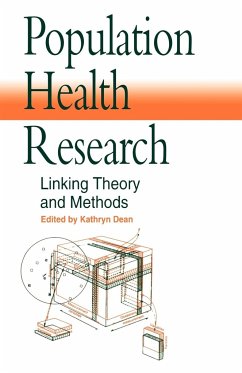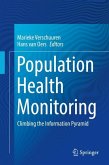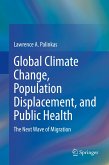This book is a comprehensive introduction to the methodological basis of population health research, and a critical assessment of theoretical issues affecting the quality of research on health and behaviour. Research into the many factors that shape human health or illness, has traditionally emphasized experimental design and the statistical effects of specific factors. While due attention is paid to such methods, the contributors emphasize the importance of theory-guided, multi-method approaches for research into the complex forces affecting health, health-related behaviour and the effectiveness of health services. Throughout, the value of analytical models of population health is related to their utility in informing and building theoretical knowledge.
Hinweis: Dieser Artikel kann nur an eine deutsche Lieferadresse ausgeliefert werden.
Hinweis: Dieser Artikel kann nur an eine deutsche Lieferadresse ausgeliefert werden.
`Should prove a useful resource for experienced quantitative researchers and a challenge to those seeking to strengthen the theoretical basis of empirical research' - Journal of Biosocial Science `Kathryn Dean, the editor, heads (and reiterates) the thesis that complexity is involved in causal health processes and that this must be reflected in research on population health issues. Hence, the book focuses on alternative research that involves the collection and analysis of complex information about health issues (eg ageing, AIDS, quality of life etc.) from population groups. An exciting introduction discusses the challenges and proposes the approaches to causal modelling as the way to provide new types of knowledge in the field.... New directions for research, with emphasis on the link between theory and methods - which should be expected to be reflected in the bulk of teaching and research - are covered precisely in the last chapter. This is recommended for scientists with an alternative view of causal research, working in the interdisciplinary field of public health' - European Journal of Public Health `A stimulating discussion of some important methodological issues... This is a book which should be in your library' - Medical Sociology News









